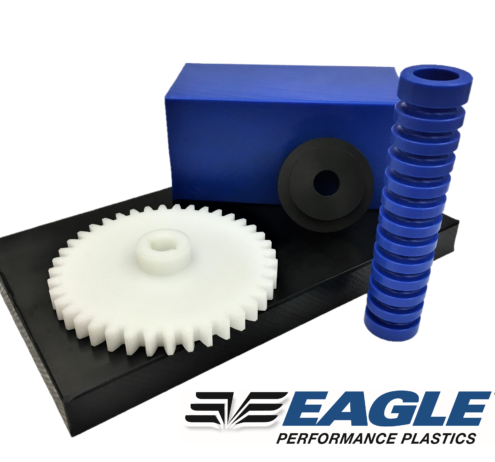PSU Unfilled

Overview
What is the Material: PSU Unfilled is an amorphous material.
Key Material Features: This material is beneficial in applications requiring transparency, heat resistance, impact resistance, and electrical properties.
Other Considerations: It is fitting in applications including autoclaves, fluid-handling systems, and continuous exposure to hot chlorinated water.
Physical
| Property | Value | Typical ASTM Test |
|---|---|---|
| Chemical Designation | (PSU) Polysulfone | |
| Trade Names (®, ™) | PSU 1000, Tecason S, Unifon PSO, Termalux | |
| Color | Yellow | |
| Density (g/cm^3) | 1.24 | D 792 |
Mechanical
| Property | Value | Typical ASTM Test |
|---|---|---|
| Modulus of Elasticity (Tensile Test) (psi) | 375000 | D 638 |
| Tensile Strength at Yield (psi) | 10200 | D 638 |
| Tensile Strength at Break (psi) | 11800 | D 638 |
| Elongation at Break (%) | 30 | D 638 |
| Flexural Strength (psi) | 15400 | D 790 |
| Modulus of Elasticity (Flexural Test) (psi) | 375000 | D 790 |
| Compression Strength: 10% Strain (psi) | 13000 | D 695 |
| Compression Strength: 1% Strain (psi) | 1800 | D 695 |
| Compression Modulus (psi) | 245000 | D 695 |
| Impact Strength (Izod) (ft-lbs/in) | 1.3 | D 256 |
| Hardness (R) | 125 | D 785 |
| Hardness (M) | 75 | D 785 |
| Coefficient of Friction (Kinetic, 40 psi, 50 fpm) | 0.36 | D 3702 |
Thermal
| Property | Value | Typical ASTM Test |
|---|---|---|
| Deflection Temperature (°F) (66 psi) | 359 | D 648 |
| Deflection Temperature (°F) (264 psi) | 345 | D 648 |
| Service Temperature Continuous (°F) | 300 | |
| Service Temperature Intermittent (°F) | 340 | |
| Thermal Expansion (CLTE) (in/in/°F) | 3.10E-5 | D 696 |
Electrical
| Property | Value | Typical ASTM Test |
|---|---|---|
| Specific Surface Resistance (Ω/square) | 1.00E13 | D 257 |
| Dielectric Strength (V/mil) | 425 | D 149 |
| Dissipation Factor (1MHz) | 0.005 | D 150 |
| Dielectric Constant (1MHz) | 3.06 | D 150 |
| Dielectric Constant (60 Hz and 50% RH) | 3.1 | D 150 |
Other
| Property | Value | Typical ASTM Test |
|---|---|---|
| Moisture Absorption (%) (24 Hours) | 0.3 | D 570 |
| Moisture Absorption (%) (Saturated) | 0.6 | D 570 |
| Flammability | V-0 |
The data stated are typical values intended for reference and comparison purposes only. The data should not be used as a basis for design specifications or quality control. The information is provided as a guide to the best of our knowledge and given without obligation or liability. Testing under individual application circumstances is recommended.
